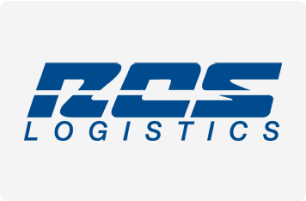Logistics resilience is no longer a “nice to have”, just in case something goes wrong. Over the last few years, we’ve had our fair share of unexpected events. From US port congestion to COVID-19 closing down Chinese ports, or increased crime at the Mexican border to the Baltimore bridge collapse. The world is unpredictable, and these events will occur at a rather worrying frequency.
Logistics has the potential to be impacted by every single micro and macro event. What is true today could become impossible tomorrow, for reasons beyond your control as a forwarder or a shipper.
That’s why building logistics resilience when the going is good is paramount to your sustainable success.
Logistics resilience is not about control
When seeking greater logistics resilience, there is a trend amongst beneficial cargo owners (shippers) to gain greater control over their logistics operations. This “logistics resilience” usually comes in the form of increased visibility and more open communications with service providers and suppliers. The truth is, when such events occur, greater levels of visibility for the sake of visibility will not help. The likelihood of logistics service providers being able to correctly formulate an immediate response plan to a bridge collapsing or the Red Sea becoming a war zone is close to zero.
What shippers really seek when they talk about visibility and control is improved communications. Anyone can switch on the news or jump on LinkedIn as an event is occurring for live commentary. But what BCOs want to know is the immediate, and to a less urgent degree, potential short-term and medium-term impacts on their supply chains. Logistics resilience is not just knowing about what has been impacted. What will be impacted is just as important.
Forwarders build logistics resilience by having a plan B (and C)
We all have favorites. But when it comes to ports, terminals, and carriers, being smart and building resilience go hand in hand with diversifying. The logistics industry is big on networking, and having a strong network with great relationships can be the difference between customer retention and total service failure.
During the COVID-19 pandemic, we witnessed extreme behaviors from carriers which left some forwarders without any options, and their BCO customers without their goods. Prices were constantly increasing, and with the increases came bidding wars in the form of “voluntary surcharges”. The larger BCOs who work directly with carriers negotiated much of the available capacity. As for the forwarders? Those with the best relationships, although not fully spared, managed to deliver for a portion of their customers.
Digital-enablement of logistics resilience
Whether you’re a forwarder or a BCO, you’re probably tired of hearing about “digitization”, “blockchain”, and “AI”. The good news is that these vague and trending concepts do not really contribute to logistics resilience, yet.
Pairing high levels of digital enablement with powerful processes and workflows seems to provide the flexibility and levels of reactivity necessary for a resilient logistics operation. This doesn’t mean digitizing everything, far from it. Starting from the data that feeds your logistics operations, through to the software systems you use, and across the processes and workflows you design, the puzzle pieces come together forming stronger logistics ecosystems.
By curating the data that comes into your systems, you avoid information intoxication leading to decision paralysis and slowed reactivity. Choosing the best software solutions for your business means greater levels of automation and an easier time identifying exceptions. Paired with great processes, including workflows, this software drives resilience by enabling better communication with impacted stakeholders. Let’s dive a bit deeper:
Improved data quality leads to efficiencies
There are a number of third-party data providers in the logistics space who pride themselves on the sheer volumes of data that they provide. The problem with many of their models is that you pay for all of the data upfront, even if you do not need it. The result? Slowdowns, difficulties finding what you really need, and an overall loss of momentum.
Then you have the concerns around data quality. When dealing with large amounts of third-party data that is consolidated and pushed through their algorithms, you cannot truly trace the data back to a source. For improved data quality and logistics resilience, building your own carefully thought-out ecosystem is key.
Building smart integrations with the data providers you need, including first and third-party systems, those of your suppliers, partners, and customers, reduce the data bloat. This not only reduces data handling costs, but also increases overall speed, and makes finding what you need that much easier. The added benefit is that you control the quality of what comes in, building a strong base for logistics resilience.
Your interconnected ecosystem improves data passthrough
Having data come into your ecosystem is great, but it needs to do so with purpose. This data needs to come in and pass straight through to where it is most useful, be it in dashboards, third-party systems, or reports.
This level of data automation is a real game changer (we do not use that word lightly) for resilience. Rather than leaning on forwarder’s staff members to make sure customers are updated on occurring events, everything can be automated. The same goes for access to documents, milestone updates, tracking, status updates… There are no limits to what can be achieved with high quality data and some great software and workflow combinations.
This also allows shippers to greatly limit potential downstream impact on their operations. Good data in tells the forwarder that a ship will not be on time. Great software identifies every shipment on that ship that is impacted. This information is fed directly to the BCO through data passthrough, who’s own great software identifies the purchase orders impacted and potential stock and inventory issues. Sounds too good to be true, right?
Exception management drives logistics resilience
At the end of the day, those major macro events mentioned in the opening paragraph of this article are exceptions, no matter the frequency of occurrence. Our belief is that exceptional exception management not only contributes to stronger logistics resilience, also becoming a competitive advantage.
Everything mentioned previously contributes to your exception management success. Through digital-enablement of your processes and workflows, high levels of automation throughout your logistics operations are achieved. Regardless of whether you’re a forwarder arranging shipments for BCO clients, or a shipper taking-on more of your own logistics needs, automation is a key part of exception management.
Our approach to exception management involves highly customizable and fully configurable alerts and notifications through our purpose-built engine. Whether used internally or provided to your customers, the goal is simple: never miss an exception, be warned ahead of time where possible, and always have your customers and other stakeholders working from the same data.
These are the fundamentals when approaching logistics resilience from the data, software, and processes angles. They are proven and can be implemented regardless of existing technology stacks and processes, with minimal interruption to operations and short implementation timeframes. Do not wait for the next major disruption to occur, start building more logistics resilience today.
About Prompt Global
At Prompt Global, we work with both forwarders and BCOs to help improve supply chain transparency, leading to lower overall costs and a better overall experience. Solutions we provide range from minimizing unnecessary charges (detention, demurrage, customs non- compliance, SCOPE 3, etc) to optimizing the PO to booking process (reduce costs, reduce transit times, avoid known global supply chain issues). Further, our tech centralizes data into a unified platform that a BCO can utilize with all of its forwarders and similarly a forwarder can use with all of its shippers.
Our user base extends from DSV and FedEx to Kohl’s and HP.
Also, unlike most other logistics technology companies, we’re fully self funded and profitable so you don’t have to worry about our solvency or longevity.
Prompt is GDPR, ISO 27001, and SOC 2 compliant.


